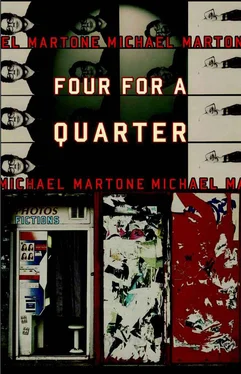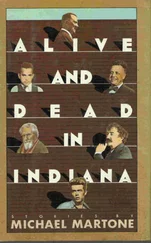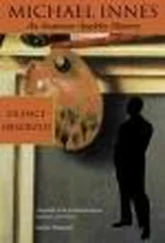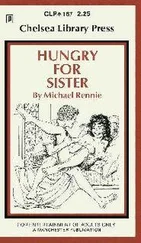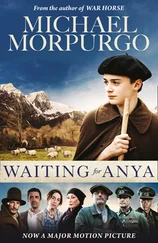Michael Martone - Four for a Quarter - Fictions
Здесь есть возможность читать онлайн «Michael Martone - Four for a Quarter - Fictions» весь текст электронной книги совершенно бесплатно (целиком полную версию без сокращений). В некоторых случаях можно слушать аудио, скачать через торрент в формате fb2 и присутствует краткое содержание. Год выпуска: 2011, Издательство: Fiction Collective 2, Жанр: Современная проза, на английском языке. Описание произведения, (предисловие) а так же отзывы посетителей доступны на портале библиотеки ЛибКат.
- Название:Four for a Quarter: Fictions
- Автор:
- Издательство:Fiction Collective 2
- Жанр:
- Год:2011
- ISBN:нет данных
- Рейтинг книги:3 / 5. Голосов: 1
-
Избранное:Добавить в избранное
- Отзывы:
-
Ваша оценка:
- 60
- 1
- 2
- 3
- 4
- 5
Four for a Quarter: Fictions: краткое содержание, описание и аннотация
Предлагаем к чтению аннотацию, описание, краткое содержание или предисловие (зависит от того, что написал сам автор книги «Four for a Quarter: Fictions»). Если вы не нашли необходимую информацию о книге — напишите в комментариях, мы постараемся отыскать её.
. In subject — four fifth Beatles, four tie knots, four retellings of the first Xerox, even the sex lives of the Fantastic Four — and in structure — the book is separated into four sections, with each section further divided into four chapterettes—
returns again and again to its originating number, making chaos comprehensible and mystery out of the most ordinary.
Four for a Quarter: Fictions — читать онлайн бесплатно полную книгу (весь текст) целиком
Ниже представлен текст книги, разбитый по страницам. Система сохранения места последней прочитанной страницы, позволяет с удобством читать онлайн бесплатно книгу «Four for a Quarter: Fictions», без необходимости каждый раз заново искать на чём Вы остановились. Поставьте закладку, и сможете в любой момент перейти на страницу, на которой закончили чтение.
Интервал:
Закладка:
MA
I see her see the saints, Anthony of Padua, the patron of lost things, lost people, and Jude, the patron of losing, of lost lost causes. She read with a glass, magnified, squinting, coaxing the print to grow. She mussed the Mass cards, spread them out on the kitchen table like tarot, like my baseball cards, the statistics, the details of the dead, the final prayers, recipe cards for funerals. I fielded my cards across the table — St. Mickey, St. Willie, St. Aparicio, St. Sandy, St. Ernie — my voice introducing them to the audience of her, a public address booming, echoing in the vast stadium of her kitchen, her echo doubling the litany of the canon. Later, when she decides to die and then dies, she will say that the saints have said it is so, so she does. That was after I lost my eyeteeth, pulled to make spaces for the spacers. The new bands smarted, wired my mouth closed, a declension — tender, tenderly, tenderness. I look angelic in the first communion portrait, a pseudosaint, orthodontic. She looked at me askance. Cornered me in the corner of her eye. She saw me as another icon, saw me suffer under a mal occhio . So, she made the mal occhio mirrored back at my mal occhio to combat it. At the kitchen table, she mumbled the mumble while drip-dropping the olio in the water, watching until, at last, it collected itself into the shiny slimy worry beads she worried, the sign I'd been seen, and then spat and pinned the amulets of twisted horn to pierce open the bad glance. I saw her see the saints in the light falling through her kitchen windows. They talked to her in pulses of light, plosives of color. I followed instructions, building the scale model of the Avenger, its parts spread out on the floor spread with morning papers, the words worming under my gaze. It was blue, the airplane, and its wings folded and the decals were stars. The furniture was wrapped in plastic she polished. I fogged the clear plastic of the toy canopy with the dissolving glue on my fingers. The pilot's head was the size of a pea. I fit tab A into slot B, lost a blue piece in the nap of the rug. I caught her looking as I looked.
GRANDMA BLANCHE
I see her, eyes closed, in the bed she is going to die in. I have just arrived, taking the red-eye overnight to make it in time. Everyone will say she waited for me to arrive, and when I did arrive we didn't wait long to witness the last laboring breaths, her eyelids fluttering. Everyone says she had been dying a long time, sitting up in her chair, staring out through the picture window, awake through the day, through the night, seeing shadows in the shadows, dust in the clouds of dust blown up from the ball diamonds in the park across the street. Everyone said it was the cable, the witnessing all the Eyewitness News that put her over this edge, the flickering loop of muggings and murders in the Loop, daily box scores of death. I'm not so sure. I watched her watch out all my life. Stare. Always there, she was never there. She wore trifocals, their optics fragmenting her eyes, fracturing the light, bluing there, going to indigo, then violet, her unblinking eyes a puzzle beneath the broken-up stains. The television was black-and-white, even after color had been invented, and the screen was haloed by a lighted frame advertised by Zenith to soften contrast. Her chair was angled so she could catch the oblique pictures bouncing from the TV and the ones glancing in through the picture window. She watched me for her daughter, my mother, who worked as I was growing up. I watched her fall asleep sitting up, her eyes not closing. Playing in the front yard so that she could keep an eye on me, I made faces and waved my arms to startle her pictured inside the window. She didn't start but didn't take her eyes from me, the optical illusions of flat portraits where the look follows you back and forth, and I went back and forth, her mirage of me, the only movement her eyes panning as I moved. No one knew where she went when she went behind her eyes, but everyone agreed that as she failed she went there more and more, her eyes turned inward. We wondered what she was imagining, what she saw when she wasn't seeing. We all asked her all the time what she was thinking when she was thinking and what did she dream when she dreamed and, “Oh, nothing,“ was what she always answered when she answered at all.
GRANDPA JIM
I see blue, yellow, but I am deficient in the reds and greens, see them only through crossed wires in my mind. Knowing grass is green, I see the gray of the gray I see as grass, a grass green when I think about it. It has always been hard to explain, how the brain's circuitry saturates the absence with this solid mass of missing information. It's in the genes. He was truly colorblind, and I could half-understand the gradient of grays his brain fudged with, niggling the nervous mechanism of misfiring. Imagine this pale world one big paint-by-number pattern and the pallet, this spectrum of grays, deflected only by intensity, by darkness and light, by value but not by hue, all drawn out within the outline until the brain supplied a pigment's alias. The brain is always fooling itself. He was an electrician, a member of the Brotherhood, whose union buttons pictured a fist squeezing a bundle of jittery lightning. Each year's button screened a different pastel shade. He wore the current year on his beige porkpie hat. A green, I think. He wired together every school science fair project for me. Each year, I displayed the schematics of circuits, series and parallel, illuminating big Christmas tree bulbs — in primary yellow blue red orange green — screwed into the porcelain sockets. See, I would say about the series, when one bulb burns out the circuit's broken. Without the light, the colors left, blacked to black. He stripped the copper wire of its plastic insulation, crimping the coating, each with its own tinted sheath, wrenching it from the wire underneath, and then threaded the white copper wire into the screw connections connecting. The wires came in all colors, of course, the scraps of insulation exhausted confetti. I saw what he saw. Saw it in the way he saw it. Not knowing what is missing, a transmission of this lackluster lack. We watched the television skewed to black, to white, even as it announced its living color. Spies were everywhere, always hesitating over the spilled-gut circuitry of some explosive device, attempting to ascertain which wire to clip to defuse the bomb, sorting through the nest of leads, a gray coiling spume of the same. We watched the beaked pliers peck and tease, all shading and shadow, one wire now balanced on the whitest edge of the scissor. No, not that one, he said into the depths of the invisible scanning light, light drained of its knowing.
Mount Rushmore
WASHINGTON
Freud fucked us up, this Father business. The Mother business as well. He, Sigmund, is the inventor of the modern novel, is the novelist of the twentieth century, the founder of the form. He is the Father, that again, of the notion of Character and even more importantly the notion of the character of Character, this business of depth, this business of three dimensions, this business of complex. The forefather of the epiphany of The Epiphany and the transformation of transformation of Character that follows. He, Freud, elicits in me a kind of envy, yes, Envy, that I have not, in all my years, invented or, in all my years to come, will never invent, any Character as real as Ego, as real as Id. There! There are fictions for you. So contagious as to jump the page, reformulate the brain chemistry so completely as to deny the efficacy and accuracy of Brain Chemistry to explain the brain. His invention of the Subconscious and the Unconscious naturalizes inside us (Inside Us!) the idea of the Subconscious, the Unconscious (See!) as if these fictions are not fictions. I like the bib of slag spilling down the General's chest, a graphic demonstration that the head of the Head of State was always in state there inside the mountain. See the limestone-wigged helmet of the figurehead on the brow of the cliff ship! The lithic waste is the cascading, foaming bow wake. George is a kind of Venus in drag and Penis in person, the titanic member being the progenitor of his Country, sure, but also Love, I guess, or at least that compelling drive of Sex, emerging from the sea of solid rock.
Читать дальшеИнтервал:
Закладка:
Похожие книги на «Four for a Quarter: Fictions»
Представляем Вашему вниманию похожие книги на «Four for a Quarter: Fictions» списком для выбора. Мы отобрали схожую по названию и смыслу литературу в надежде предоставить читателям больше вариантов отыскать новые, интересные, ещё непрочитанные произведения.
Обсуждение, отзывы о книге «Four for a Quarter: Fictions» и просто собственные мнения читателей. Оставьте ваши комментарии, напишите, что Вы думаете о произведении, его смысле или главных героях. Укажите что конкретно понравилось, а что нет, и почему Вы так считаете.
